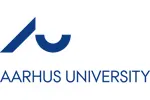

| The award | How you will study | Study duration | Course start | Domestic course fees | International course fees |
|---|---|---|---|---|---|
| MSc | Full-time | 4 semester | September, February | 0 | EUR 0 per year |
Nanoscience is an interdisciplinary field within the natural sciences. It deals with understanding and utilising materials and phenomena at the nanoscale - that is, between 0.1 and 100 nanometres. The ability to work on this scale makes it possible to develop highly improved or completely new functions and properties in a wide range of materials.
The MSc in Nanoscience programme at Aarhus University is relevant for students with a BSc degree from a Danish or international university in either nanoscience or an interdisciplinary combination of physics, chemistry, and molecular biology. The Nanoscience degree programme is both practical and research-oriented. Students can complete an MSc project in a number of areas, including nanomaterials, interfaces and catalysis, nano-medicine, synthetic biology, and nano-food.
PROGRAMME STRUCTURE
The MSc programme consists of 120 ECTS credits. Students study subjects within the fields of physics, chemistry, and molecular biology, as well as specific nanoscience subjects. Based on their previous academic specialisation, students choose their courses and the subject of their MSc project so as to specialise in one of four areas: nanomaterials, biomedical nanotechnology, structural biology and biophysics, or organic nanochemistry/soft matter. Students are offered guidance in selecting their individual course programmes from a suite of master's courses offered by iNANO and the relevant departments. The degree programme concludes with the Master's project.
INTERDISCIPLINARY INANO
The Nanoscience degree programme at Aarhus University is based at the Interdisciplinary Nanoscience Centre, iNANO. iNANO is staffed by its own researchers as well as researchers drawn from the departments of Physics, Chemistry, Molecular Biology, and Genetics as well as researchers from other departments and the Faculty of Health. The centre's mission is to build on three basic pillars: top-level international research, education at all levels from BSc to PhD, and innovation and interaction with industry and society at large.
CAREERS
As a graduate in Nanoscience, you will be qualified to work in R&D in both public and private sectors in medicine, the environment, biotechnology, and the IT and communication industries. A number of R&D projects are currently under way at iNANO, in collaboration with approximately a hundred Danish and international companies, including Novo Nordisk, Aalborg Portland, Arla Foods, Danfoss, Grundfos, Haldor Topsøe, Lundbeck, Unisense, Carlsberg, Dupont and Novozymes. The iNANO School - part of the iNANO Centre - comprises both an international graduate school and associated research groups in physics, chemistry, biology, and molecular biology, working in the field of nanoscience and nanotechnology. iNANO promotes excellent science and provides an academic environment for PhD students of the highest calibre, and many graduates of the programme go on to do a PhD.
All EU/EEA/Swiss citizens are exempt from payment of tuition fees.
In general, admission to a Master’s degree programme requires successful completion of a relevant and recognised university degree equivalent to a Danish Bachelor’s degree in level and length (180 ECTS). All applications must also fulfil the English language requirements.
Find more information about the admission requirements, application procedure and deadlines at Aarhus University.
In addition, you must meet the specific requirements for the Nanoscience programme, which can be found on the Nanoscience study programme page.
Below are some suggested courses at other providers that you may also be interested in:
Molecular Simulations of Weak Polyelectrolytes in Semidilute Regime PhD
Faculty of Science, Charles University
Find out moreIf you do not meet the entry requirements for this course then consider one of these postgraduate preparation courses from another institution:
Graduate Diploma of Engineering (Industrial Automation)
Engineering Institute of Technology
Find out moreThere are 56 other courses listed from Aarhus University. A selection of these are displayed below:
Find out more about studying in Denmark